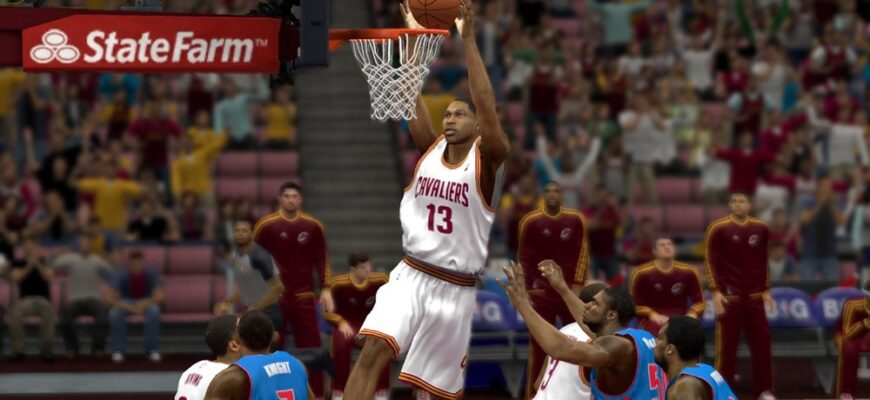The NBA season, a spectacle typically dominated by gravity-defying dunks and strategic plays, has found itself embroiled in a different kind of high-stakes drama. Recent federal investigations into illegal sports betting and rigged poker games have sent palpable shockwaves through the league, drawing prominent figures into a spotlight few in professional sports ever wish to occupy. The arrests of Portland Trail Blazers coach Chauncey Billups, Miami Heat guard Terry Rozier, and former player and assistant coach Damon Jones signal a perilous new chapter where the allure of legalized gambling clashes with the sacred integrity of the game.
A Wake-Up Call for the League
The news arrived swiftly, catching many off guard. The sentiment across the league ranged from outright shock to a profound sense of sadness for those involved. Erik Spoelstra, head coach of the Miami Heat, articulated a common feeling, expressing genuine care for Rozier and acknowledging his positive locker room impact. Rick Carlisle, head coach of the Indiana Pacers and president of the coaches` association, called it a “shocking day,” highlighting the gravity of the situation and the inherent irony that such news broke just after teams had received their annual warnings about gambling regulations.
“It`s a shocking day… this is a very serious situation,” Carlisle noted, pointing to “a world that`s a different world than it was a few years ago with the advent of legalized gambling.”
This sentiment was echoed by J.B. Bickerstaff, head coach of the Detroit Pistons, who expressed personal support for his long-time friend Chauncey Billups, emphasizing the need for due process amidst a difficult time for Billups and his family. Even Golden State Warriors forward Draymond Green, known for his candidness, admitted he was “shocked” by the developments, acknowledging the “tough moment for the individuals involved” and for the league as a whole.
The Unseen Pressures on Players and Coaches
Beyond the immediate arrests, these investigations have brought to the forefront the growing pressures placed on players and coaches in an era where sports betting is increasingly accessible. Jaylen Brown, Boston Celtics forward and VP of the National Basketball Players Association, raised a crucial point regarding the league`s initial embrace of this “whole world” of betting.
“I don`t think they took players into consideration,” Brown stated. “We don`t benefit from any of the profits, but we`ve got to deal with a lot of the extra negativity and scrutiny behind all the gambling stuff. On top of that, it creates more integrity issues.”
His observation hints at a fundamental imbalance: while leagues and betting companies reap immense financial benefits, the human element – the athletes – are left to navigate a landscape fraught with new challenges and potential pitfalls. This isn`t just about avoiding illegal activities; it`s about the pervasive atmosphere created by fan expectations. Chicago Bulls center Nikola Vucevic articulated this frustration with a touch of exasperation:
“Before you used to hear, `Vuc, get a win.` Or, `Hey, do this and that.` Now it`s like, `Hey, my parlay is 10 rebounds.` Honestly, it pisses me off, because it`s disrespectful to the game.”
His comments underscore a disturbing trend where the intrinsic love for the game is overshadowed by individual betting interests, eroding the traditional fan-player dynamic. Coaches like Orlando Magic`s Jamahl Mosley and Detroit`s Bickerstaff confirmed that the league and teams are intensifying efforts to educate personnel about the rules and dangers. Bickerstaff warned of the insidious nature of information in this new economy:
“Information has been monetized now… You`re having an innocent conversation with a friend of yours, but who knows what that friend does with that information… all money ain`t good money. And this puts a ton of pressure on our guys, on coaching staffs, on families.”
Navigating the Expanding Role of Sports Betting
The NBA, like many professional sports organizations, has forged lucrative partnerships with betting companies. This raises a complex question: how does a league promote and profit from legal gambling while simultaneously combating its illegal and integrity-threatening forms? Draymond Green offered a pragmatic, if slightly cynical, perspective on the inescapable nature of betting accessibility:
“That can of worms [will] be opened with partnering with gambling companies or not… The accessibility is what it is… So I think those partnerships are going to continue to grow… Our league has done an incredible job of growing this game. Partnerships come when you grow the game, and for all of us, from ownership to players, it grows the pot.”
Green’s comments highlight the dual reality: the financial incentives for expansion are clear, and the genie of widespread betting, particularly through mobile apps, is already out of the bottle. Stephen Curry, a respected veteran, expressed confidence in the overall integrity of the game, acknowledging that this is “new territory for everybody” and that collective responsibility is key. Similarly, Spurs coach Mitch Johnson emphasized the need for continuous education and mindfulness as the “business of the league” evolves.
The Road Ahead: A Risky Bet
The current investigations serve as a stark reminder that the integration of sports and gambling, while financially rewarding, is not without significant ethical and operational risks. The NBA now faces the unenviable task of walking a tightrope: maximizing revenue from legal betting while rigorously protecting the integrity of its competitions and safeguarding its personnel from the dark underbelly of illicit activities. This isn`t merely a legal challenge; it`s a cultural one, demanding a re-evaluation of how players, coaches, and even fans interact with a game that is increasingly intertwined with the world of wagers. The stakes, it seems, have never been higher, and the league’s ability to navigate this complex landscape will define not just its financial future, but the very essence of its athletic spirit.







